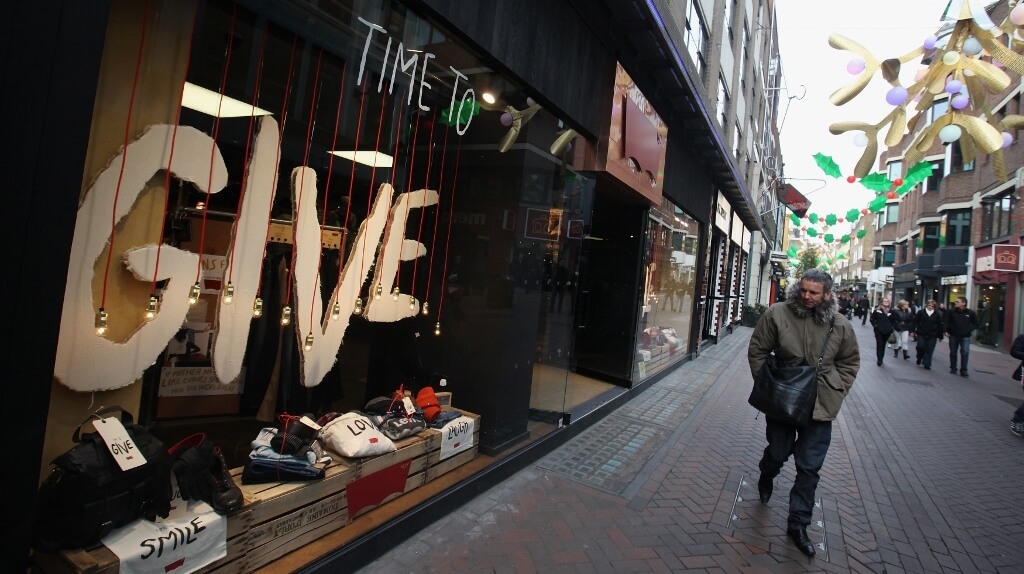Look To Small Businesses To Rebuild Consumer Trust
Trust in institutions is plummeting: small business to the rescue.

Public trust in institutions has reached a nadir in recent years. Despite a slight global rise in business trust between 2018 and 2019, the latest Edelman Trust Barometer found that just 40% of the UK mass population trust our institutions, and more than half believe the way business works today is not good for society.
As a way to “regain public trust”, the Institute of Directors (IoD) has called for business leaders to abide by a code of ethics; to ensure that they stick to sustainable commitments, and consumers are not deceived by those who talk a good game but fail to implement purposeful policies in reality.
The idea of doing good in business has been institutionalised amongst many organisations as ‘Corporate Social Responsibility’ (CSR). This catch-all phrase can cover a range of activities, from reducing environmental impact to spending company time supporting local charities.
This display of awareness by big business is a great step forward, but do we really need to codify the rules for doing good? Small businesses, which make up 99% of enterprises, are already leading the way in this area of their own accord and are ingraining purpose in their business models from the outset.
The eagerness that big companies are expressing to make the world a better place is a huge step in the right direction, but it needs to become part of a wider culture of kindness, rather than stand-alone initiatives. Only one in 20 small businesses have an official CSR policy, and yet they still manage to play a key role in supporting their communities.
Peak b’s Small Business Community Value report found that 83% of small businesses spend time supporting their local community, devoting an average of 10 hours per month to the cause.
Similarly, they are keen to give vital support to their own employees. Smaller enterprises are the most likely to give employment opportunities to people who often struggle to break into the job market, including young people and parents, or those with mental health issues or long-term illnesses who have taken time away from work.
Once people are in work, small businesses help them to achieve a healthy work-life balance, with 80% of small businesses offering flexible working. This allows them to get to work more easily, care for young families or even show their own entrepreneurial spirit by starting their own business on the side.
This spreading of opportunity helps to boost communities by giving people a chance to find their vocation, as well as reducing the amount that welfare services spend on supporting out of work people.
Small businesses even spend an average of 18 hours per year training people who are not employees. They are uplifting their own communities and boosting local economies, purely driven by their community spirit, and they show no signs of stopping.
Small business leaders do not do this because they have created rules about how much time to spend on charity work or how much to reduce their carbon footprint. They do these things because they care, and – as members of their communities – have an interest in seeing the places they live and their neighbours thrive.
These are the kind of employers with a conscience that all companies should aspire to be. In return they are rewarded with the loyalty of their customer base, who appreciate the personal service and support they receive from their local independents. In short, they trust them.
Small Business Saturday, which this year took place on 7 December, is the perfect example of just how much monetary value customer loyalty can accrue, with £812 million spent on the day last year in small businesses up and down the country according to research from principal supporter American Express.
Larger businesses who want to ensure customer loyalty over their competitors can and should learn that the key to success is in looking after your community and doing it in a way that is natural and in-built to the company’s business model, not a bolted-on CSR-initiative.
CSR has been misused by companies in the past as a way of showing they are doing good, without this being transferred to reality. This has led to the build-up of mistrust between business and consumers that has sparked the IoD’s code of conduct call.
But it is less important for business to have a code of conduct than it is to understand that doing good is far more than the credit you get for it. The £15bn-worth of community activities undertaken by small businesses every year often go unrecognised. When small businesses do good, it is not surrounded by fanfare, it just happens.
It is time we started seeing small business as industry leaders, not followers. As big businesses look to boost their positive impact, they should look towards the example of the 5.8 million small enterprises across the nation. That is how they rebuild trust.
Thanks for signing up to Minutehack alerts.
Brilliant editorials heading your way soon.
Okay, Thanks!


